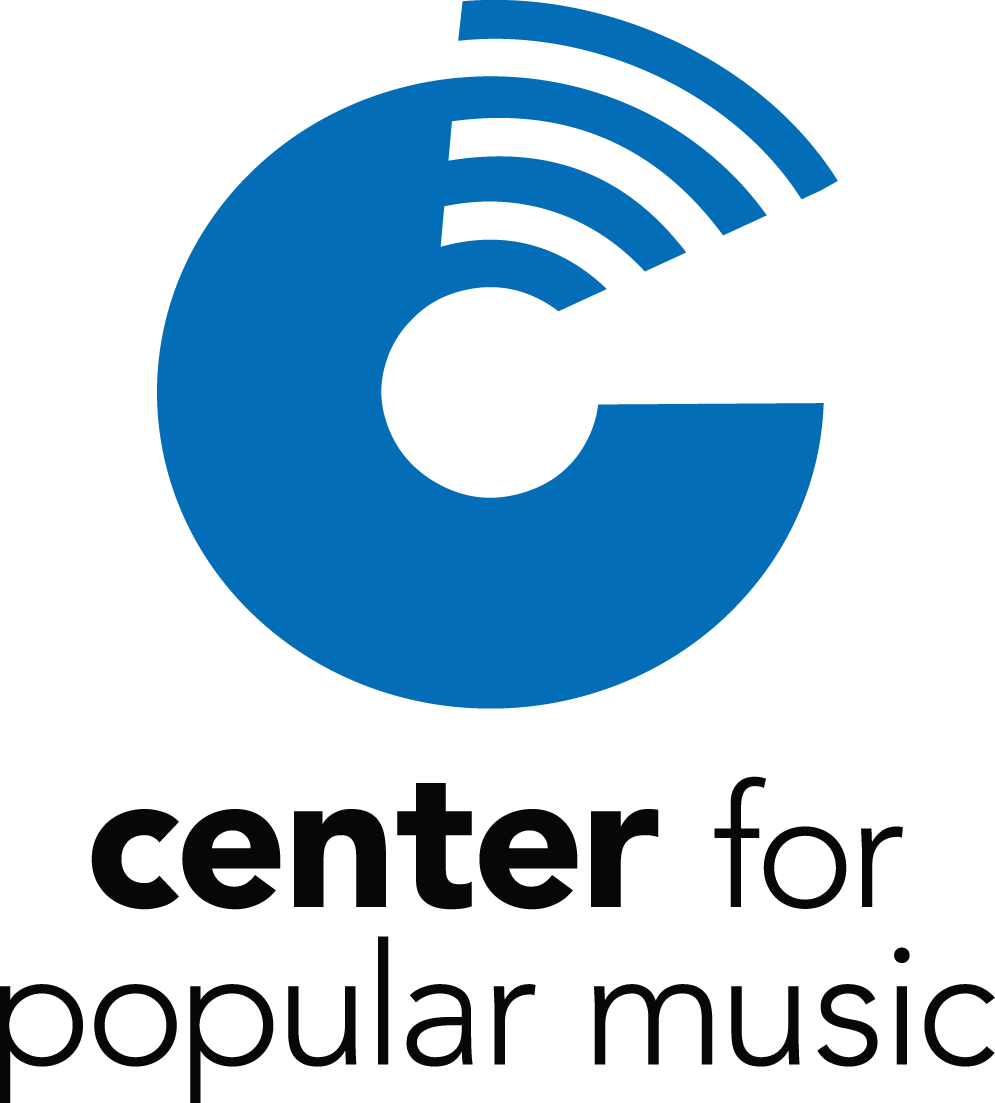CPM Online Exhibits
Songs of United States Social Movements
Story Map - Launched December 2023
This will provide a list of songs housed at the Center for Popular Music relating to a few of the social movements from U.S. history. This exbitit and reseach guide was created by Graduate Assistant Miranda Barnett.
Music of Hawai'i

Story Map - Launched February 2022
"Music of Hawai'i" is a digital exhibit showcasing some of the Center for Popular Music's Hawaiian music collection, with a focus on Native Hawaiian musicians and music. This digial exhibit serves as a romote access to point to the phyiscal exhibit that was on desplay in the Center for Popular Music Reading Room in the Spring of 2022. Both digital and physical exhibits were created and installed by Graduate Assistant Miranda Barnett.
Soul of a Songwriter
Oral Histories by Odie Blackmon -- Launched August 2020
These oral histories were conducted by hit songwriter, Odie Blackmon and donated to the Center starting in August 2020, the project is still ongoing and be sure to check back for more.
Castles Made of Sand
Story Map -- Launched February 22, 2019
"Castles made of sand": Musicians with complex racial identifications in mid-twentieth Century American Society, a Story Map by Graduate Student Sam Schaefer, examines musicians with complex racial identities in American popular music and how thus complexity was reflected in their careers. Learn about Lena Horne, Charles Mingus, Charles Lloyd, Jimi Hendrix, and Keith Jarrett.
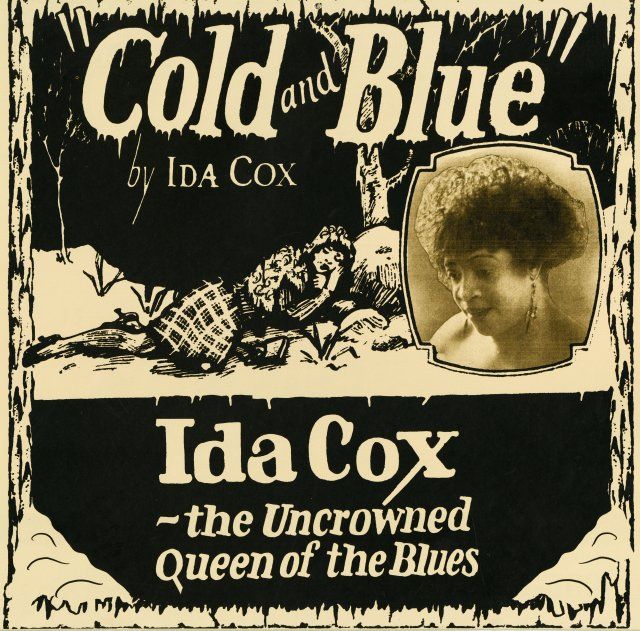 Wild Women Don't Have the Blues
Wild Women Don't Have the Blues
Story Map — Launched August 29, 2018
This Story Map by Graduate Students Katie Rainge-Briggs and April Blevins explores the blues music of women who lived and performed in Tennessee including Alberta Hunter, Ida Cox, Memphis Minnie, and Bessie Smith. It includes resources from the Center's collection. Check it out here.
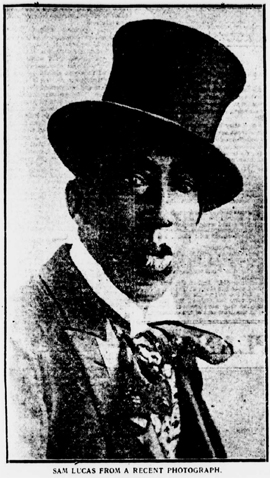 The Songs of Sam Lucas
The Songs of Sam Lucas
Online Exhibit — Launched September 18, 2013
This exhibit explores the songs of entertainer Sam Lucas, whose body of work "serves
as an important window into the post-Civil War era."
The Center for Popular Music and Professor Sandra Jean Graham of Babson College have collaborated to create this online exhibit featuring examples of photographs, sheet music, and playbills that tell the story of Sam Lucas and his work.
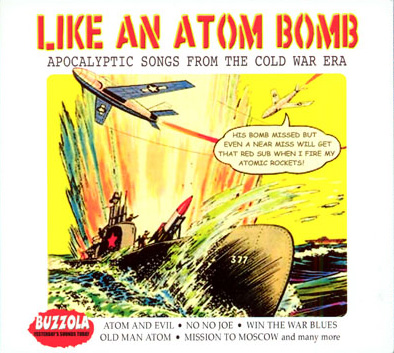 American-Soviet Relations: From Allies to the Cold War
American-Soviet Relations: From Allies to the Cold War
Online Exhibit — Launched May 1, 2013
This exhibit portrays the American–Russian relationship during World War I and then
progresses until the height of the Cold War. By researching material from the Center
for Popular Music's collections, the music of this historical context provided a representation
of the differing relations and tensions between these two super powers. The music's
lyrics and tempos demonstrate the changing emotions associated with the tension over
war and the uncertainty of nuclear destruction.
The Center for Popular Music and Elaura Highfield have collaborated to create this online exhibit featuring examples of song books and sheet music that tell the story of American-Soviet relations.
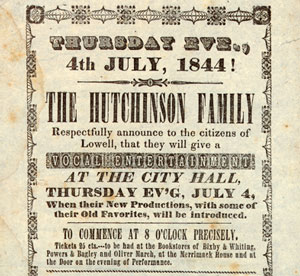 The Hutchinson Family Singers
The Hutchinson Family Singers
Online Exhibit — Launched May 2, 2013
When people think of protest music, they might picture folk singers from the 1960s.
Using music to make a statement started much earlier than that, however. The Hutchinson
Family Singers, from New Hampshire, were one of the most popular musical performing
groups in the 1840s. They sang pieces promoting prohibition and other social reforms,
but their biggest support went to the abolitionist movement. Wanting to sing for the
causes of freedom, the Hutchinson Family Singer provided the soundtrack for immediate
emancipation before the Civil War.
The Center for Popular Music and Rachel Smith have collaborated to create this online exhibit featuring examples of photographs, songsters, sheet music, and playbills that tell the story of the first "American Idols."
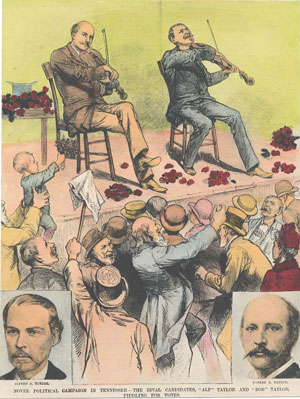 The History of Political Songs and Jingles in Tennessee
The History of Political Songs and Jingles in Tennessee
Online Exhibit — Launched October 11, 2012
"In a state with such a rich musical heritage, it seems natural that music has played
an important role in Tennessee politics as much as other, more familiar, areas of
the state's culture. In this 2012 election year, we invite you to explore the many
facets of political songs and jingles in Tennessee and American history."
The Center for Popular Music and the Albert Gore Research Center have collaborated to create this online exhibit featuring examples of political jingles, images and videos.
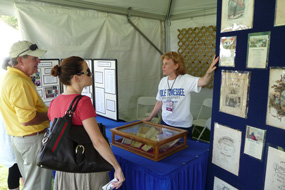 "Harmony and Discord: Music of the Civil War"
"Harmony and Discord: Music of the Civil War"
National Folk Festival, Nashville, TN — September 2-4, 2011
Music was a powerful force during the Civil War: both North and South used music as
a call to arms, expressing ideals, commemorating leaders, adding levity, and providing
solace. Certain songs are forever linked with one side or the other, as they provided
a way for people to define themselves and create sectional enthusiasm and pride. Among
the North's great patriotic rallying songs were Julia Ward Howe's "Battle Hymn of
the Republic" and George F. Root's "Battle Cry of Freedom," while the South countered
with Dan Emmett's "Dixie's Land" and "The Bonnie Blue Flag," the "national anthem
of the Confederacy." These and hundreds of other war-related songs were heard in parlors,
in concert halls, at rallies, in camp, and on battlefields. Singing of glory and pain,
hope and despair, longing and triumph, this music constitutes a cultural heritage
that resonates yet today. The music publishing industry matured during the war years,
leaving a rich record of sheet music, songsters, broadsides, and song books. This
exhibit will compare and contrast popular music of the North and South during the
war, with a special focus on how the conflict in Tennessee was expressed in song.
popular.music@mtsu.edu
615-898-2449
1301 E. Main Street
Middle Tennessee State University
Murfreesboro, TN 37132
Bragg Media & Entertainment Bldg.
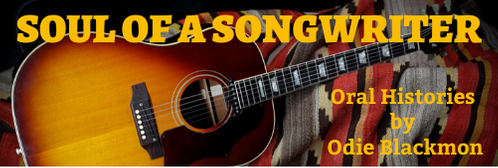



 "Harmony and Discord: Music of the Civil War"
"Harmony and Discord: Music of the Civil War"

